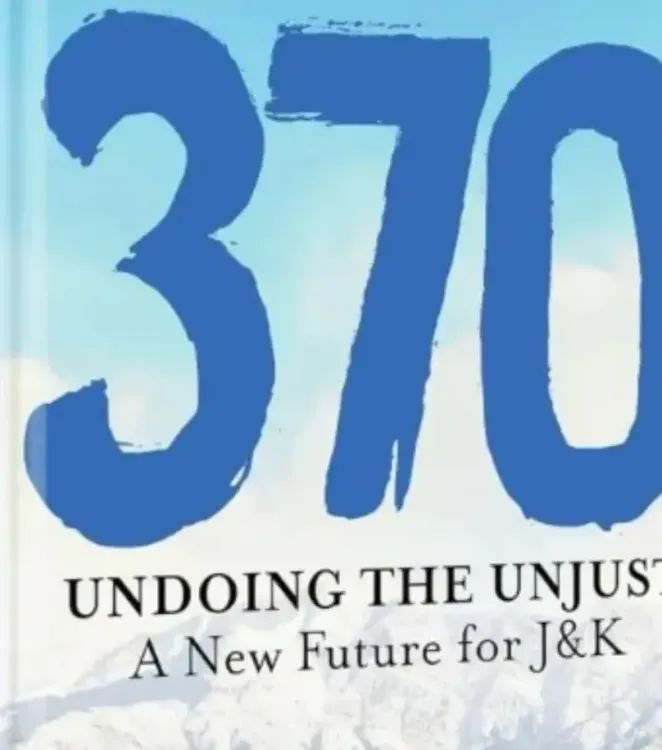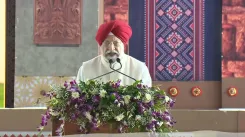What drove the end of Article 370 for prosperity and stability in J&K?

Synopsis
Key Takeaways
- Article 370 was abrogated in 2019 to enhance prosperity in Jammu and Kashmir.
- The decision was based on extensive planning and legal groundwork.
- New opportunities for investment and development have emerged.
- Full application of laws protecting marginalized communities is now possible.
- The book emphasizes the importance of unity and inclusiveness in national progress.
New Delhi, Sep 14 (NationPress) The repeal of Article 370 initiated a transformative shift in 2019, aimed at paving the way for prosperity and stability in Jammu and Kashmir, according to a media analysis published on Sunday that reviews a book detailing the historical context and vision behind the Central government's move.
The publication titled "370: Undoing the Unjust: A New Future for J&K" is recognized as a significant contribution to modern historical narratives, as noted by The Global Kashmir.
According to the report, the abrogation of Article 370 has facilitated investment, infrastructure enhancement, and the growth of educational and employment prospects.
Furthermore, it has enabled the complete enforcement of laws that safeguard women, children, and marginalized groups that previously did not apply to Jammu and Kashmir.
The book illustrates the narrative of how a long-standing constitutional provision, Article 370, was decisively addressed, opening new avenues for Jammu and Kashmir.
Published by BlueKraft Digital Foundation, the book emphasizes the extensive planning that preceded the decision made in August 2019.
This was not an impulsive decision but the culmination of thorough planning, legal scrutiny, and administrative readiness, the report explains.
It highlights how the Union government maintained peace and order, strengthened institutions, and ensured a seamless transition.
This focus on meticulous planning underscores the gravity with which the decision was approached, assuring readers that the action was not merely symbolic but well-considered.
The book also reflects Prime Minister Narendra Modi's vision, mentioning that the decision required the agreement of the people of Jammu and Kashmir rather than being enforced upon them.
The report concludes that the book evokes a sense of optimism, demonstrating that bold decisions, when accompanied by careful preparation and an inclusive vision, can turn long-standing challenges into avenues for growth.
It also serves as a reminder that unity, equality, and justice are not mere concepts but essential principles to be actively practiced.
By framing the abrogation of Article 370 in this perspective, the book aids in fostering greater understanding and national confidence.
"This book is not merely a documentation of a constitutional amendment, but a tribute to a promising future. It portrays the abrogation of Article 370 as a pivotal moment that enhances India's unity and positions Jammu and Kashmir firmly on the path to progress," the report concluded.
Describing the book as insightful and motivational, the report states that it elucidates the significance of this historic decision and the brighter prospects it has opened for the residents of Jammu and Kashmir.
The narrative serves as a powerful reminder that the 2019 changes were intended to create fresh opportunities for prosperity and stability.
"It presents the abrogation not as a conclusion but as the dawn of a new chapter where the inhabitants of the region can engage more profoundly in national life. The focus is on opportunities, development, and empowerment," the report emphasized.







